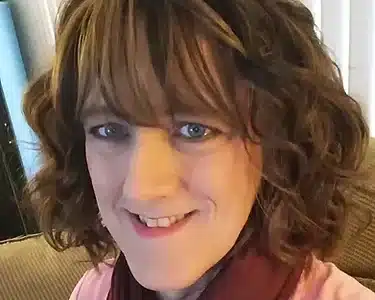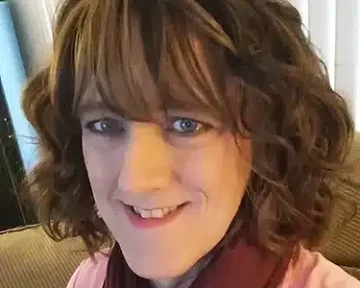This piece was commissioned as part of the In Our Own Words series, which seeks to share the voices and experiences of marginalized individuals. You can find all of the pieces in this series here.
By Valerie Nicole Green
I am profoundly disheartened by the various states currently considering or implementing prohibitions against transgender youth gender affirming care. My heart is broken for the affected children in the states where these horrible and discriminatory laws will harm an entire generation of transgender individuals and their families.
As I look back on my life, I’m reminded of the many times that I wished that I had access to some of the care that is available to youth today. I longed for the dream of transitioning as a child. I didn’t have access, whether because it didn’t exist, my family would never have pursued it, or we simply were unaware of its existence.
That feeling must pale in comparison to the youth of today who, through the power of the internet, are so much more aware of the options that are available to them. WPATH, the World Professional Association for Transgender Health (previously known as HBIGDA, the Harry Benjamin International Gender Dysphoria Association) didn’t even exist until I was around fifteen years old in 1979. Its existence is easily discoverable by almost all the youth in our society today. Knowing that gender affirming care exists and is being legislatively denied can have devastating consequences to our transgender youth today.
I knew I was different for practically my entire life. I have memories of yearning for a life in the feminine world from my earliest memories, around four years old. I became aware that surgical reassignment was possible in my early teens (I remember it as 10 or 11, but facts prove me wrong) when I read about Dr Renée Richards, the first and only (that we know of) transgender woman to play professional tennis.
What follows are more recent experiences. These are experiences that I found painful. They are experiences I may have avoided with early gender affirming care that could have been spared me the ravages of a puberty that I did not want to experience. I desperately hope that younger transgender people can be spared.
I want to emphasize, especially for those who may recognize themselves in these stories, that I am not calling anyone out and that I believe no one did anything intentionally.
I attended a women’s retreat in 2022 as a first-year attendee. I attended again this year. But I can tell you that I had second thoughts about staying (or just continuing participation) for the remainder of the retreat that first year and questioned whether I’d ever be returning.
I was welcomed. I was included. I was loved.
I was also strongly triggered.
I walk into any female space with just a bit of trepidation and with my shields up because I know I have physical characteristics that belie my development before transition. Will those characteristics affect the way I am seen, included, treated, trusted? To some extent, yes.
An important lesson I learned that first year is that it can be painful to be in a place where everyone is there to heal in some way. Sometimes there are emotionally raw moments for others that expose your own. I know now that I may encounter them and I’m glad to say that I was able to adapt that first year, though it cost me a nearly sleepless night and a few silent tears (didn’t want to wake my roommate) that first evening.
On the first evening, we were all standing around in a common room and chatting. I’m an introvert, so this is already hard for me. I’m also aware of the timbre and resonance of my voice and that it can be a dead giveaway of the puberty I experienced, so I don’t like talking in general in women’s spaces. But I was slowly fitting in. Just as I was feeling comfortable, a woman joined our small group. She walked up to me and said (paraphrasing) “Oh, a tall person. I always like to be near people who are taller than me so I don’t stand out so much”. To be clear, this was a perfectly reasonable and friendly thing to say. It’s a way to break an awkward silence. How could she have known how much I hate being taller than the other women around me. At 5’11” (apparently, I lost an inch somewhere in my middle age), I often tower above other women. I hate it.
It’s not as though I don’t know other women who are as tall or taller than me. A dear friend, a cisgender woman, is 6’3” and I know that no one would ever peg her as anything other than a cisgender woman. I also don’t know whether she would be similarly bothered by comments about her height. Maybe. I’ve never asked her. If I’d been seen as a girl/woman my entire life, perhaps my height wouldn’t bother me so much. As it is, it’s a painful reminder. In my mind, my height is still a dead giveaway and is one of those physical characteristics that early care might have helped me avoid.
This 2022 retreat was attended solely by women. Everyone was asked to indicate their pronouns upon registration, and at the opening group session we confirmed that everyone in attendance was using she/her pronouns. That should make it simple, when into the second or third day, to avoid misgendering someone. Nope. At lunch the second day, I got misgendered. That is always painful. It’s gut wrenching. It instantly brings up an unpleasant past that I would rather just forget ever existed.
Everyone has been socially conditioned to recognize and react to physical characteristics in gendered ways. Clothing, hair, makeup (or lack thereof), size, and voice qualities are all things we are socially trained to interpret in gendered terms, and we are then socialized to respond in gendered language and actions. Sitting at lunch, the most likely thing to trigger a misgendering is my voice. Consequently, I hate my voice. I’ve made some attempts to change it. I may take further actions in the future to change it.
Most transgender people I know are very much aware of the difference between an accidental slip and a malicious use of gendered terms. We give a lot of grace to those who make the occasional mistake. I’m grateful when someone instantly realizes it, quickly and simply apologizes, and moves on. That’s the right thing to do for such a mistake.
So, if I understand simple mistakes and offer grace to the other party, why is it still such a painful experience? Because it reinforces the idea that I’m not fully seen as a woman. It tells me that no matter what I’ve done to this point, no matter how many steps I’ve taken in my journey, no matter what has been done to make me feel included and that I belong, I’m still being seen as “a man in a dress.” It tells me that the other person still sees me as, at worst, male, or, at best, a transgender woman — not simply a woman, but a transgender woman. It reinforces the idea of being different (in an unwelcome way) and being othered. It hurts. I’m proud to represent, in some small way, the transgender community. I don’t shy away from it. But that distinction between being a transgender (or a cisgender) woman only belongs in discussions when the distinctions are important such as during discussions with my medical professionals or discussions about gender identity.
Almost ten months later I had an opportunity to head out to a weekend with all queer women and AFAB (Assigned Female At Birth) non-binary individuals. This group knew each other from on-line interactions and decided to get together to get to know each other better. Some were couples, some were attending alone from mixed orientation relationships, and some were single. It was a delightful weekend of music, games, hiking, swimming, food, more games, and just general fun with some wonderful people. Everyone there had either she/her or they/them pronouns. It felt like a safe space for everyone. For a couple of attendees, this was the first time they had been in a group where they could be themselves openly with zero judgement and full acceptance. That was wonderful. We had a great time.
You might think that this would be another place where it would be next to impossible to be misgendered by a member of the group. You spend a couple of days with your people and everything is going swimmingly. But then you get into a conversation and someone casually (and accidentally) misgenders you. It was obviously a mistake. It was rectified swiftly and appropriately.
But. It’s. Still. There.
Sigh. My mood the rest of the day was cloudy. You might think that this pain goes away over time. It actually gets worse. I can go months without being misgendered and suddenly it occurs out of the blue. It is always a gut punch. I think it’s worse when I’ve interacted with someone a lot and it suddenly pops out. The message I get is always the same. It tells me that I’m still seen as AMAB (Assigned Male At Birth). Something they perceive about me still tells them that I’m transgender rather than cisgender. It’s something I wish would go away and never come back.
Being misgendered hurts. Quickly apologizing and moving on is the right thing to do. But consider that your one act of misgendering may be a transgender person’s fifth time that day or the tenth time that week. If you love your transgender siblings, please make every effort to use appropriately gendered language. Being reminded of the physical characteristics that resulted from the wrong puberty also hurts. Please endeavor to use language that doesn’t highlight their physical characteristics.
Valerie Nicole Green is a transgender woman who is active in her ward of The Church of Jesus Christ of Latter-day Saints in Missouri. Before transitioning, she was married for 34 years and is now widowed. She is a parent to five children and grandparent to six grandchildren. After five decades of waiting, she has been fully socially transitioned since January 1, 2019. She loves tennis and pickles (and her family when they’re behaving).







7 Responses
Thank you for sharing tender experiences. Language matters.
I really wish I could make my brain work to never misgender someone again. I will see a trans or nonbinary friend and absolutely know them as a woman/man/nonbinary human, and then when I relax my unconscious brain will do the dirty trick of subconsciously giving me the wrong pronouns. And while I have always assumed it hurts, I am so grateful for you sharing your experience so honestly and with such vulnerability and rawness. All of us who by the luck of the draw were born cisgender need to double and quadruple our efforts to respect pronouns. I wish the world was different and better for you and all trans people, and we cisgender people need to listen to you more and try harder. I wish you hadn’t gone through male puberty. I wish the frustration of everything was more equally spread and we all shouldered some of it and could make the world a more compassionate place.
Thank you for sharing all of this! ♥️
Thank you for sharing your heart. I recognize it is not your responsibility to help me be more aware…and I appreciate your vulnerability that helps me learn and be better so that hopefully I can be a better support as my niece goes through this journey.
Thank you so much for this post. We (the cisgender community) especially need to hear it and do better with the people in our lives. We also need to remember your experience as we vote and discuss and advocate for policies, for the sake of future generations as you said so well. We need to fight for a world with accessible, comprehensive, compassionate gender affirming care.
Thank you Valerie. I appreciate your willingness to share about your vulnerable experiences.
Thank you friend. I really love this piece and I feel lucky to know you.
Beautifully written, Valerie. Thank you.